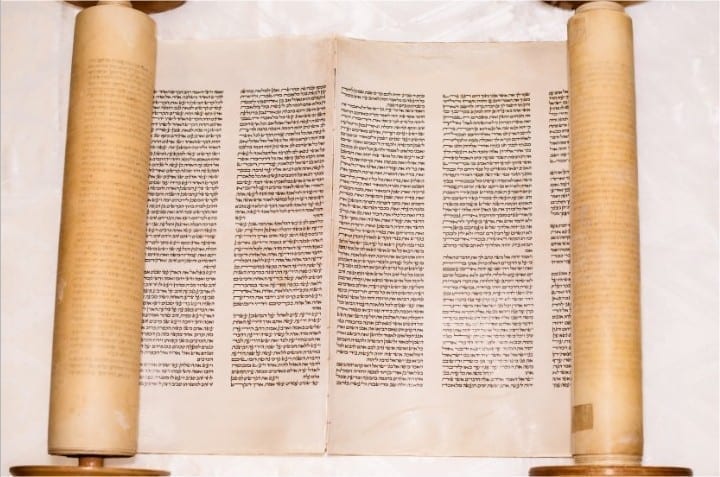Let’s talk about the term “vayeishev,” which refers to living with peace of mind, being able to sit securely when the world around you is in turmoil. What is it like to have the peace of mind that Yosef Hatzaddik had, the peace of mind that Tamar had, even in the darkest, loneliest moments? How did they do it?
This week’s parshah is full of tragedies and misfortune. The brothers sell Yosef; Potiphar’s wife slanders Yosef with her horrible lies; Tamar is married to two wicked husbands, and after their deaths she is blamed for their failed marriages. Still, Yosef and Tamar remained like candles, burning quietly and brightly, at peace even when their situations were utterly bleak. How did they do it? How did they remain unaffected by their plights?
The key to living this way is a beautiful expression that recurs often in this week’s parshah—the two words “yamim rabim,” many days. Both Yosef and Tamar knew the secret—to wait, wait, wait with patience. When Yosef was imprisoned on false charges, he didn’t know how long it would be until he was a free man again. Still, he chose to wait patiently.
For nearly 11 years he sat behind bars, thoughts of revenge never crossing his mind. When he saw other prisoners in distress, he approached them and asked, “How can I help you?” His perspective differed drastically from that of the foolish sar hamashkim and sar ha’ofim, who wanted immediate interpretations of their dreams.
How many years Yosef waited for his dream to come true… In the same vein, Tamar sat and waited. She dreamed of the day Yehudah would allow her to marry his third son, Shelach, whose name hints at the word “illusion.” Although this was all a dream in Tamar’s mind, she waited patiently: “Vayirbu hayamim,” and the days added up as she sat in her father’s home.
So too, Yaakov Avinu waited for Yosef to reappear. Here, too, we find the same expression: “Vayitabel al b'no yamim rabim,” and he mourned for his son many days. Yamim rabim is power. In order to see the light, whether it is a matter of shalom bayit, parnasah or shidduchim, we need to wait. When the going gets tough, we need to see the image of Yaakov Avinu before us and hear the words of Yosef Hatzaddik: “Al tirgezu baderech,” don’t quarrel on the journey. Yes, it’s a long way, but don’t give up. Stay close to Hakadosh Baruch Hu and you’ll make it through.
We know that Hillel plays a large part in our understanding of Chanukah, which is an acronym for the words “Ches neirot vahalachah k’Beit Hillel.” What is Hillel’s beautiful secret for us? It is found in the famous story in the Gemara of the nudnik who bothers Hillel while he is preparing for Shabbat. He asks, “Why do the Bavlim have oval-shaped heads?” With utmost patience, Hillel says to him, “What a great question! That’s because the midwives there are not very professional, and they deliver the babies in a way that distorts the shape of their heads.” Hillel returns to his preparations, only to be summoned again moments later. This time the man asks, “Why are the feet of the Africans so wide?” “That is a brilliant question,” Hillel replies. “It is because they live near swamps, and in order to prevent them from drowning, Hashem created them with wide feet.” But the man isn’t done.
Several minutes later he returns to ask why the Karmodim, inhabitants of the Far East, have eyes that are half closed. Hillel replies, “That’s a very good question. The Kardomim live in a place that is filled with sand and the winds are strong there, so Hashem fashioned their eyes in a way that would enable them to see despite these conditions.”
What was this man’s true intention in asking all these questions, and what was Hillel’s message to him? What the man really wanted to know was why Hakadosh Baruch Hu created ugliness and imperfection. And Hillel answered him, “Everything that you see as imperfection is really the secret of these people’s survival. If the midwives didn’t deliver babies as they do, if the Africans didn’t have wide feet, if the Karmodim had eyes that were wide open—entire populations would not survive.” Hillel’s message to all of us is that what we see as an obstacle may actually be the key to our survival.
As long as we remember this and try to believe it with all our heart, our journey in the darkness will be transformed into a journey of light. And we will find the stamina to wait it out, patiently. When I lost my beautiful baby son to heart disease several years ago, I felt alone. The nisayon was so very painful. However, because I knew what a broken heart meant, I was later better able to understand others with broken hearts.
That was the silver lining behind my challenge. Of course, none of us wants to be tried. We want life to be smooth sailing, but when it isn’t, let us remember that the very challenge we see as an obstacle may well be the secret of our survival, the experience that will make our lives richer and more beautiful. We have to pray to Hakadosh Baruch Hu that we be granted the perspective of Hillel, who always found something to praise.
Even when the kallah was not so beautiful, he would still sing, “Kallah na’ah vachasudah.” The aspects of your life that seem imperfect to you will prompt the most growth. As a result of their challenging situations, both Yosef and Tamar ultimately became the forebears of Mashiach— but they had to wait it out. So wait, dear Jewish woman. It might be yamim rabim, but in the end you will hear Hashem’s voice telling you what Tamar was told: “Tzadkah mimeni,” you are a righteous woman because you didn’t give up; you understood that the purpose of this nisayon was to make you a more beautiful person. After the yamim rabim, you will be able to look back with pride and say, “It was all worth it.”





